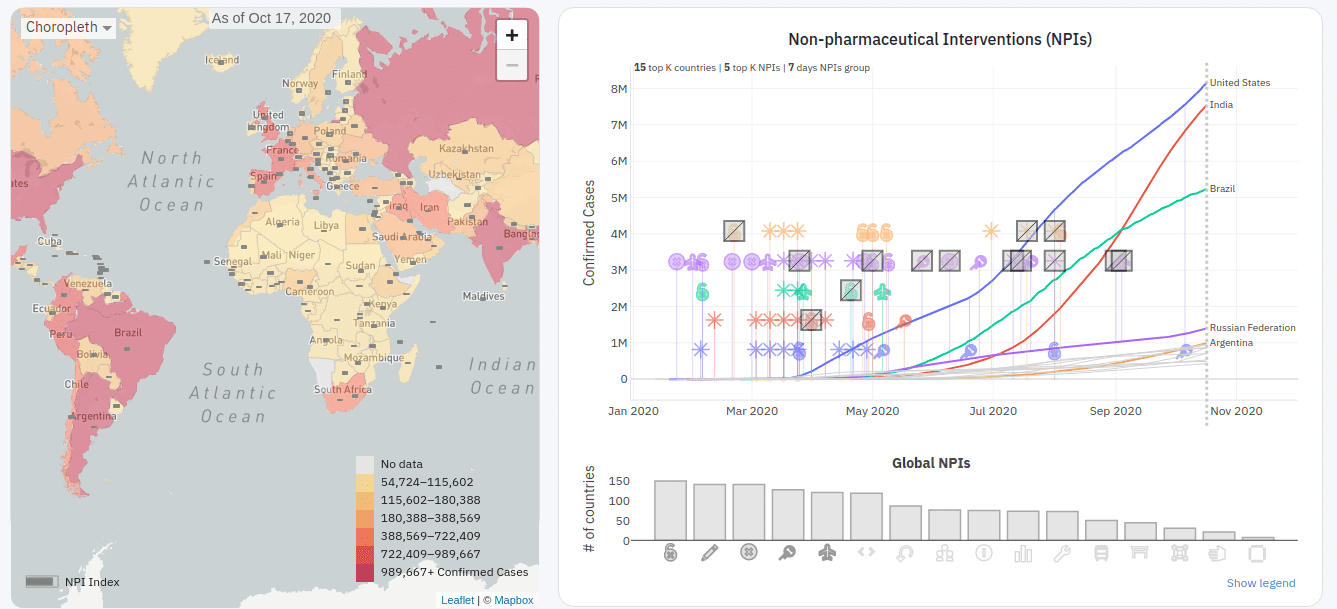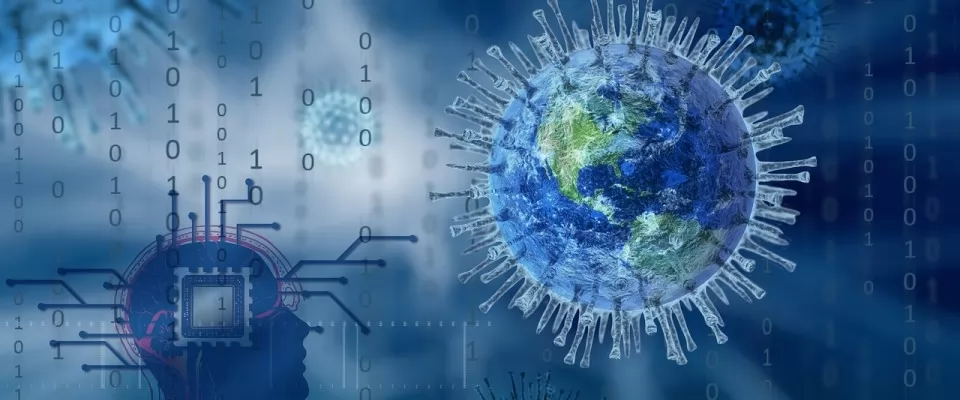Fighting pandemics high-tech style
Times are hard now, that humanity once more stumbled into a terrible pandemic. But in comparison to the poor folks back in 1918 when the Spanish flu was on wreaking havoc, nowadays we have the advantage of cutting edge technology on our side. Here’s a quick list of top three ways modern science may help is in this combat:
1. Getting tested using a smartphone
Until recently, it took powerful high-end computers in order to process the enormous task that DNA and RNA analysis surely are. But thanks to the collective effort of researchers from Garvan Institute of Medical Research in Australia and their colleagues from the University of Peradeniya in Sri Lanka, this task can be done by almost any modern smartphone. To be specific, the app that they created is able to analyses the DNA for the Sars-CoV-2 virus genome in less than half an hour. The trick lies in dividing the bioinformatics workflows into smaller sequencing data sets, which are possible to be analyzed with the limited computing resources of a smartphone.
The application is called Genopo, it is free, open source, runs on Android devices and is available through the Google Play Store. Of course that in order to analyze DNA you still need a special device allowing genomic sequencing, but fortunately, these already exist and come in the shape of handy portable devices, approximately the size of a USB stick (for example the MinION – the Oxford Nanopore Technologies Sequencer).

Combined, these technologies allow genomic sequences to be quickly generated from a sample in the field or in the clinic. This makes testing accessible to remote or underdeveloped regions, where there is limited access to computational resources and lab infrastructure.
2. Getting pre-diagnosed based on your voice only
The current pandemic situation impacted the lives of everyone, and surely many are asking how they can contribute to help stopping it. Some of us started sewing and giving away face masks, others donate blood. And then there is the possibility of donating your voice. And we mean literally.
Vocalis, a speech analysis company with offices in Israel and the United States, asked volunteers to help them by donating their voice. The company has already developed a smartphone app that is able to detect chronic obstructive pulmonary disease in its early stages. It works by evaluating signs of respiratory distress when speaking. Now, Vocalis wants to use the same for COVID-19, so they asked patients who tested positive to participate by downloading their research app. The volunteers were then asked to use the app once daily and speak into their phones, describing pictures aloud or counting from 50 to 70.
Next, machine learning systems were tasked with comparing the recordings with the voices of people tested negative for Covid-19, so that a voiceprint, characteristic of the disease could be narrowed down. The sample collecting was very successful, and allowed the team to already develop a pilot version of the covid screening tool. Now it is being tested worldwide.
The aim of this tool is not to provide a definitive diagnosis, but to help healthcare professionals to identify the people who most urgently need to be tested, quarantined or receive direct medical care.
Together with other teams who are also on the lookout for signatures of COVID-19 in the voice, they are advancing the relatively young research field of voice diagnostics. There are already algorithms that can identify a wide range of diseases - including dementia, depression, autism spectrum disorders and even heart disease based on vocal biomarkers analyzed by AI.
3. AI assisted decision making
Governments today do not have it easy at all. They need to decide on strategies to help prevent spreading the disease, but since the new pandemic brought a huge amount of very hard-to-answer questions, their job is really difficult.
There is uncertainty when it comes to what measures in what extent are to be applied. Doubts about the effectiveness or the right combination of preventive measures (such as the wearing of face masks, different forms of quarantine, school closures or different restrictions on the upper limits of group sizes in public places, etc.) have arisen across all nations. Knowledge about connections between all these various factors is still very limited. But it is exactly this kind of problem where machine learning may come to the rescue.
Researcher Aisha Walcott and her team have developed a special project designed to provide decision makers with a dashboard listing all the important indicators so that they can make better informed decision. It is called WNTRAC - the Worldwide Non-pharmaceutical Interventions Tracker for Covid-19, and its database currently contains more than 6000 non-pharmaceutical measures, classified in 15 different categories, such as school closures, movement restrictions, travel restrictions, lockdowns, and so on. The data set currently encompasses 261 countries and is growing constantly, and what’s even better: automatically. This is achieved with the help of an artificial intelligence designed to collect on a daily basis all available knowledge about the measures nations are applying against the spreading of the disease. The system works thanks to NLP (Natural Language Processing) of Wikipedia articles, government directives and news pages on the Internet. The AI tries to "understand" which measures are being talked about and where they came into effect and when, and finally puts them into a machine-usable form in which this data can be used as the basis for various visualizations. On the website, Covid cases are highlighted in color on a map, and users can select different countries and regions in a timeline and see what measures they have implemented and when. The tool also offers estimations on what measures will affect corona numbers in what ways - based on past experience gathered in the database. "Politicians and researchers can now use this information to find out which measures in a particular region lead to which results," says Walcott.

We can do it!
Thanks to modern technology and constant progress in mankind's knowledge on artificial intelligence and machine learning, we are very much in advantage when compared to previous pandemic cases our ancestors had to fight. Knowing that there are teams of talented people all over the world looking for ways to help cope with the current situation is very comforting and reassuring. Maybe when looking for a silver lining, we could say that challenges such as this one somehow help push humanity into thinking up great ideas and projects from which we all surely will benefit.
Image by PixxlTeufel from Pixabay.

